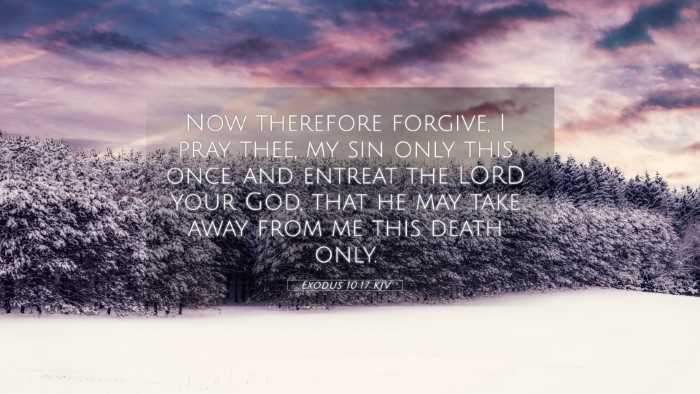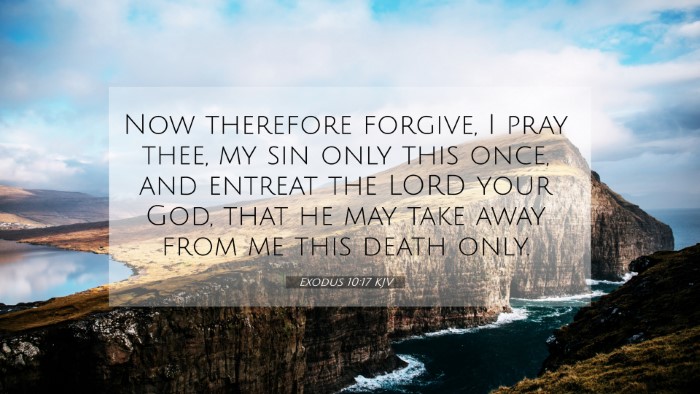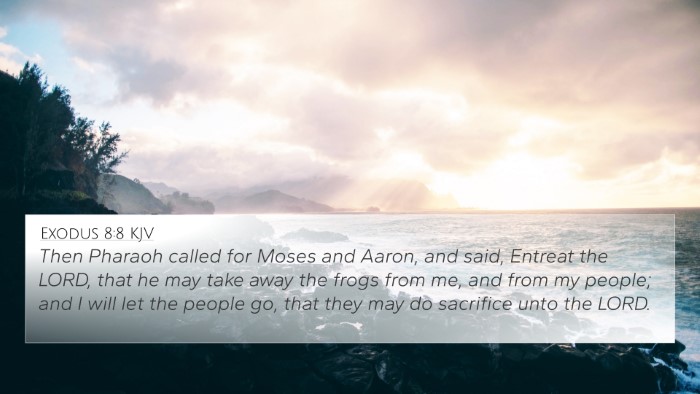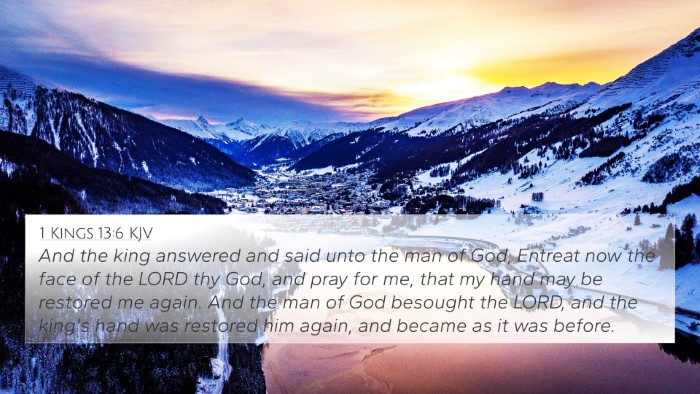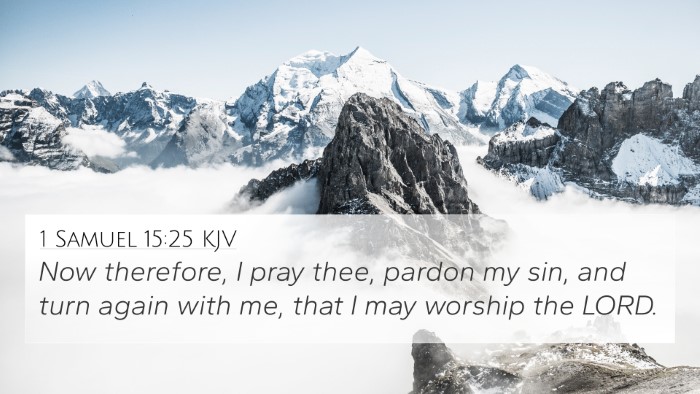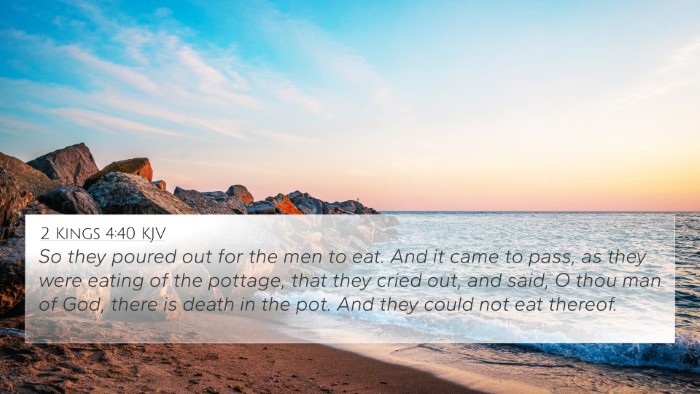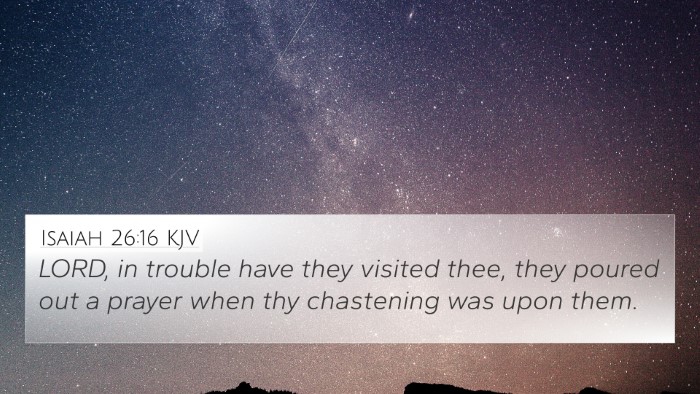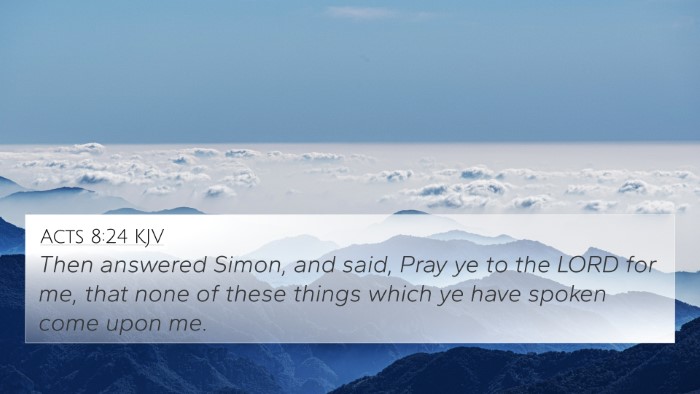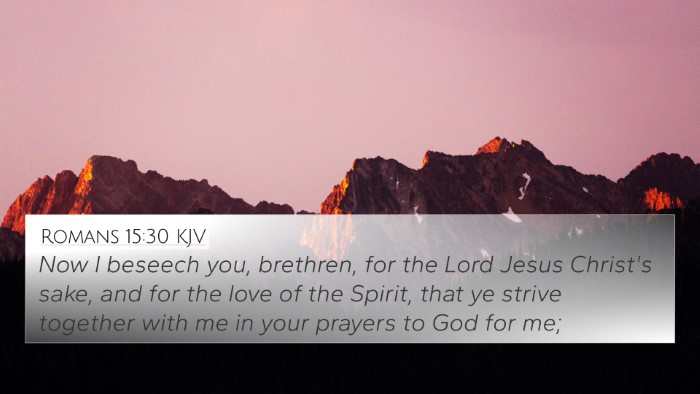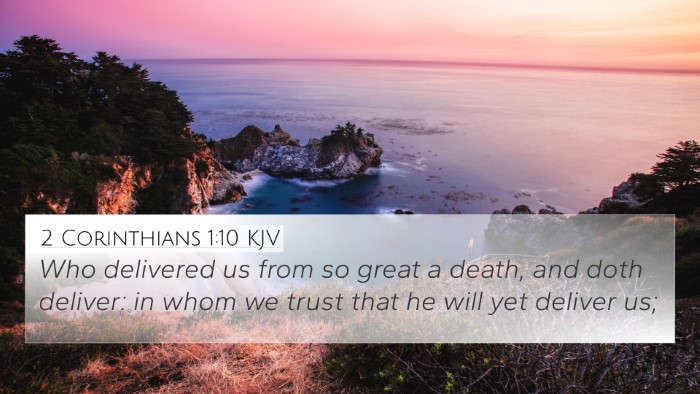Understanding Exodus 10:17
Exodus 10:17 states: "Now therefore, forgive, I pray thee, my sin only this once, and intreat the LORD your God, that he may take away from me this death only."
Meaning and Interpretation
This verse occurs in the context of the plagues in Egypt, specifically during the eighth plague, the plague of locusts. It captures Pharaoh’s desperate plea for relief after experiencing the devastating effects of God's judgment on Egypt. The verse highlights themes of sin, repentance, and the human desire for deliverance.
Pharaoh's Request
- Pharaoh acknowledges his sin: His request signifies a moment of recognition of wrongs committed against the Israelites and against God.
- Desperation for relief: Pharaoh's plea reflects the human condition of seeking redemption in times of crisis, indicating a moment of vulnerability.
Theological Implications
- This verse emphasizes the nature of repentance: True repentance involves acknowledging one’s sins and seeking forgiveness.
- The repeated requests for deliverance remind believers of the persistent need for divine mercy and intervention.
Connections and Cross-References
The importance of cross-referencing Biblical texts enhances our understanding of this verse. Here are some relevant Bible verse cross-references:
- Exodus 9:27-28: Pharaoh admits his sinfulness but quickly hardens his heart again.
- Exodus 10:3: The call for Pharaoh to humble himself before the Lord reflects the necessity of true humility in repentance.
- 1 John 1:9: This New Testament verse emphasizes confession and God’s faithfulness in forgiving sins.
- Psalm 51:17: A broken spirit and contrite heart are what the Lord desires, echoing Pharaoh's cry for mercy.
- Romans 10:9: The call to confess Jesus as Lord highlights the necessity of confession in the path to salvation.
- 2 Chronicles 7:14: Calls for national repentance, akin to Pharaoh's plea for his people.
- Proverbs 28:13: A reminder that whoever conceals their sins will not prosper, but whoever confesses will find mercy.
Comparative Analysis
By utilizing a Bible cross-reference guide, one can further explore how this moment in Exodus connects with themes found in both the Old and New Testaments. Pharaoh’s insincere appeals can be paralleled with various Biblical figures who also sought forgiveness but were met with consequences for their actions.
Insights from Commentaries
Matthew Henry emphasizes the futility of Pharaoh’s heart that continually hardens after each plague. His plea in this verse illustrates a moment of temporary remorse without sincere commitment to change.
Albert Barnes indicates that Pharaoh’s request is steeped in fear rather than genuine contrition, showcasing the complexity of human emotions when faced with divine judgment.
Adam Clarke observes that Pharaoh is more concerned about immediate relief than the underlying spiritual condition of his heart, a common issue among those who face the consequences of their actions.
Thematic Connections
The profound themes present in Exodus 10:17 can also foster discussions on broader Biblical concepts such as:
- Forgiveness and Divine Mercy: How God's willingness to forgive reflects hope for all sinners.
- Repentance and Humility: Essential elements in seeking reconciliation with God.
- Judgment and Consequence: The necessary outcomes of sin as depicted throughout Biblical narratives.
Concluding Thoughts
Exodus 10:17 serves as a rich verse for study and reflection. By examining its implications, context, and connections through cross-referencing Biblical texts, one may discover deeper truths about sin, repentance, and the nature of God’s mercy.

